Wake Forest College Democrats hosted a friendship dinner intended to provide a safe environment for students to share perspectives about the Israel-Hamas war on Wed., Nov. 29.
“We’re students first, and we wanted to create a refuge where people can get to know each other beyond the conflict,” senior Hasan Pyarali, president of College Democrats said. “We can have disagreements, and it’s important to talk about those, but we can’t have hatred.”
He continued: “Our motivation was to bring people together in shared humanity. We know that this dinner won’t create world peace overnight. It won’t solve the conflict in the Middle East, but it allows Muslim and Jewish students to go on campus with a sense of peace in their hearts, knowing that they have friends on this campus standing with them in their pain.”
The present Israel-Hamas war began on Oct. 7, when the Palestinian militant group Hamas conducted a surprise attack on Israeli towns bordering the Gaza Strip, a Palestinian territory that Israel and Egypt have blockaded for the past 16 years. (Editor’s Note: The Old Gold & Black follows AP Style guidance, which is to refer to Hamas as a militant group.) Approximately 1,200 people were killed in the attack. Israel’s response, which includes airstrikes and a ground invasion, has killed more than 15,000 people, according to the Gaza Health Ministry.
A ceasefire agreement was enacted on Nov. 24 to release Israeli hostages and Palestinian prisoners. The temporary agreement ended on Dec. 1, and the war resumed. On Dec. 4, Israeli troops invaded Southern Gaza in an attempt to stop Hamas military and political leaders in Khan Younis, where they are believed to be stationed. At least 178 were killed in strikes once the ceasefire ended.
To the Old Gold & Black’s knowledge, this is the fourth event organized by students or professors about the Israel-Hamas war. As the Old Gold & Black has previously reported, Muslim and Jewish students have reported heightened feelings of unsafety on campus as the war has progressed. On Oct. 10, Jewish students hosted a vigil in response to Hamas’ attack on Israel. On Nov. 1, the Muslim Students Association held a prayers for peace vigil to commemorate and pray for those lost during the Israel-Hamas war. On Nov. 8, history and politics professors organized a teach-in about the broader Israel-Palestine conflict and its relation to the current war. Wake Forest administration has also organized bystander intervention training focusing on antisemitism and Islamophobia as well as “Holding Space” events for students to process the ongoing violence.
Held in Benson University Center, the dinner was open to all Wake Forest community members and was intended to allow students to come together and discuss the crisis in the Middle East.
Dinner consisted of catered Mediterranean food and open seating to facilitate conversations and encourage interactions among students with different perspectives. The event was met with mixed reactions, including some who questioned the apolitical nature of the event.
A question of politics
Although a campus political organization hosted the event, fliers promoting the event advertised it as an apolitical space where students could unite during a time of campus-wide division.
Pyarali said that he wanted the event to be apolitical so it could be a space where students could get to know each other to create more respectful discussions moving forward. He reflected on his personal experience dealing with the Israel-Hamas war and said that he recognized how beneficial it is to form relationships with others, despite differing views.
“The majority of people don’t agree on this conflict, but we can agree on our shared humanity,” Pyarali said. “It’s so much better to have a conversation on this topic once you’re friends with someone, or once you know someone and don’t just see them as an opponent. It’s a lot easier to have a hateful conversation if you don’t view someone as a person.”
Some were critical of the event’s advertised apoliticism, including the Instagram account @freepalestinewfu. Managed anonymously, the account reposted the event flier with added comments that criticized College Democrats’ apolitical approach.
The comments read: “Our campus climate is political and a ‘friendship dinner’ will not and cannot resolve the upending crisis in Gaza, the crisis here on campus or the crisis in this country. In times of division, we should listen and FOREFRONT the concerns of the oppressed as opposed to attempting to DEI genocide.”
Pyarali said that College Democrats also supports the movement for a free Palestine but that the event was more geared toward creating safety and community on campus.
“We agree with their mission to free Palestine,” Pyarali said in reference to the account. “We understand their concerns about this event, but this event was a space for all students to come together, especially Muslim and Jewish students, in unity, so we can help prevent the spread of fear and hatred. The goal of this was not about optics or respectability politics. This was a matter of safety. We were trying to create a safe environment for students.”
Chloe Mazo, senior and president of Wake Forest’s Chabad chapter, gave a speech at the dinner addressing such criticisms, recognizing how important the friendship dinner was for students because it allowed them to exist beyond their identities as Muslim or Jewish.
“Those trying to misconstrue the intention behind this event, labeling it and characterizing it as ‘inevitably political,’ [are being] disheartening, confusing and disrespectful to me,” Mazo said in her speech. “[This label is] also untrue because it implies that our entire existence as Jewish and Muslim people is political. While being Jewish is important to me and is a big part of my life, there is also so much more to me and what makes up my identity.”
She continued: “I am a human being and a Wake Forest student like anyone else, and being able to come together as we are right now to appreciate and understand one another is extremely valuable. There is so much more to each and every one of us than politics.”
Breaking the ice
The event focused on uniting students beyond their political beliefs. The first portion of the dinner was for students to eat and mingle. A list of icebreaker questions were placed at tables for students to get to know each other before discussing politics. Some of these questions were “What is your favorite TV show?” or “What are your favorite spots around Winston-Salem?”
Muslim Students Association (MSA) President and senior Hazik Azam gave a speech during the event in which he expressed how important it is for Wake Forest’s community to act with humanity. He said that in a time of crisis, forming positive relationships with others is vital.
“The Pro Humanitate spirit cannot be embodied if individuals cannot recognize each other as human,” Azam said.
Mazo’s speech argued that despite differing opinions, students should unite instead of spreading hate.
“The purpose of this event is to have us come together, especially in times of hardship, to introduce ourselves and get to know one another as human beings and classmates, rather than as opposition or enemies,” Mazo said. “Our responsibility as students right now is not to stop or provide a solution to the war, it’s about coming together and introducing ourselves.”
Pyarali also gave a speech about how important empathy is during times of conflict, and how Wake Forest’s community can be much stronger if it stands in solidarity than if it is divided by hatred.
“There is so much more that brings us together than what sets us apart,” he said. “Every Jewish and Muslim student on campus should be able to go to school feeling safe and should be able to look to each other as friends first, because without each other we have nothing.”
Seniors Emily Foley and Shelby Ward appreciated hearing Muslim and Jewish students’ perspectives.
“It’s very soothing because there are a lot of politics on campus, and it’s hard to talk to people about that, but when you take politics out of it and bring everyone together, it’s a lot nicer,” Foley said.
“It’s important to remember that people’s identities are not just political,” Ward added.
In the future, Pyarali said College Democrats hopes to involve more students and will continue to provide a space with respect and humanity.
“We’d love to keep opening spaces for people to find refuge, but our main mission moving forward is to educate people on this conflict and to see how people can get involved and can go on to work in politics and enact change,” Pyrali said.



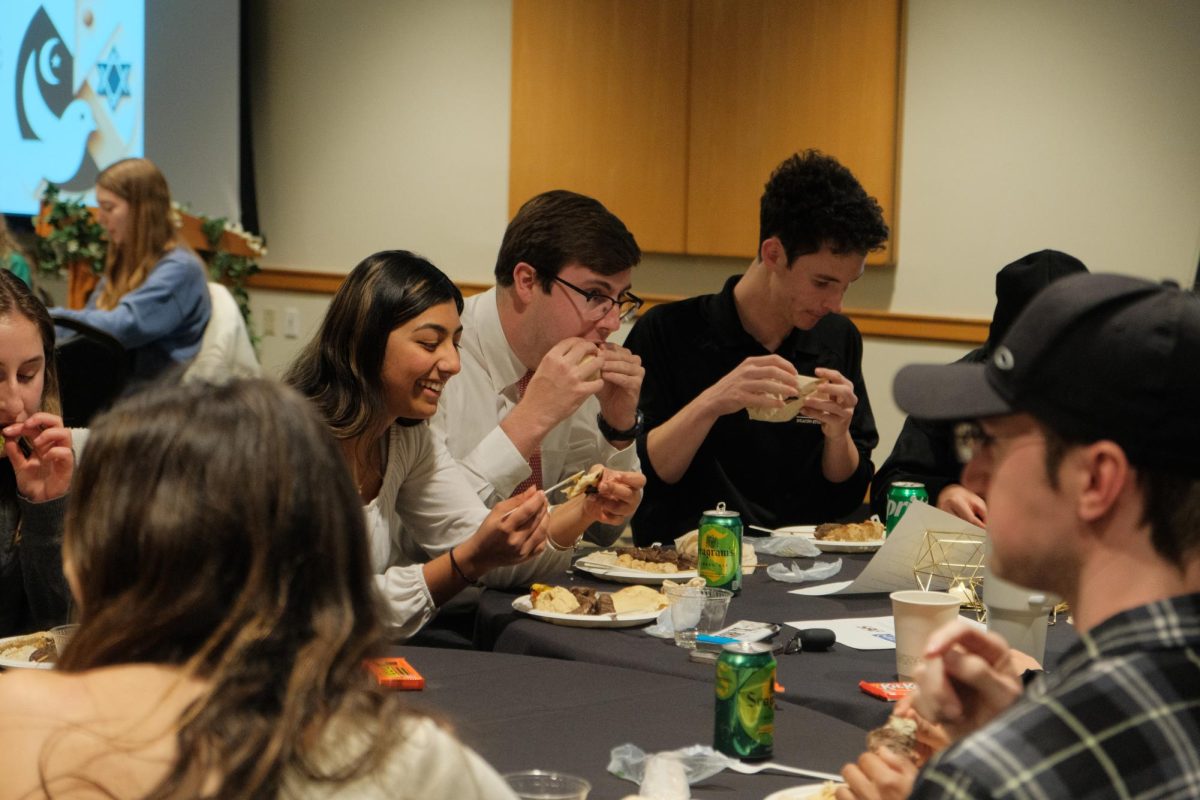







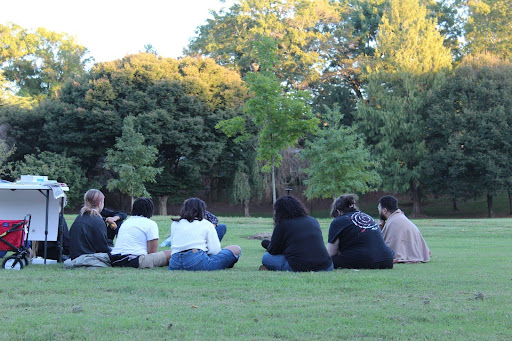
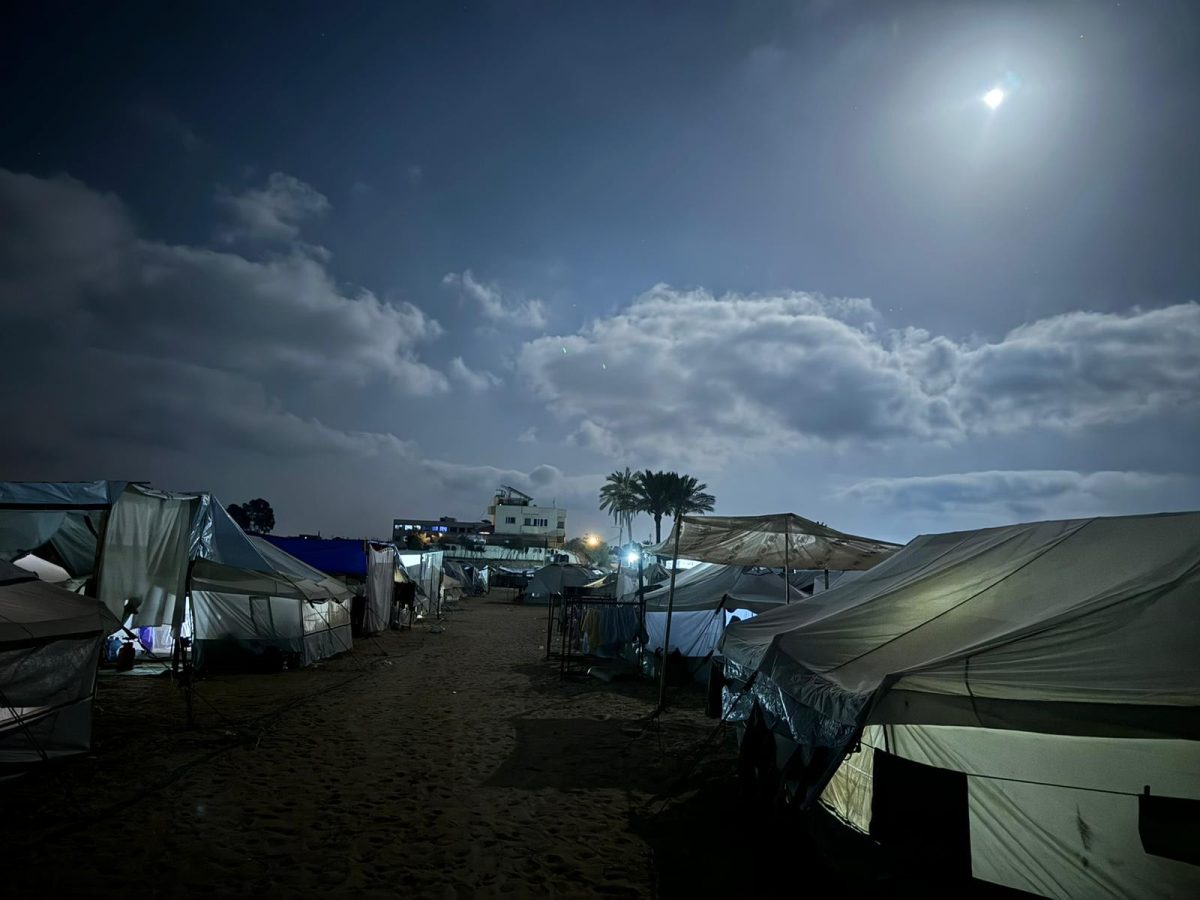
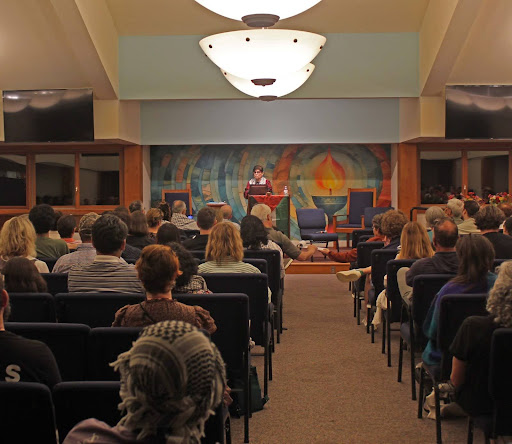
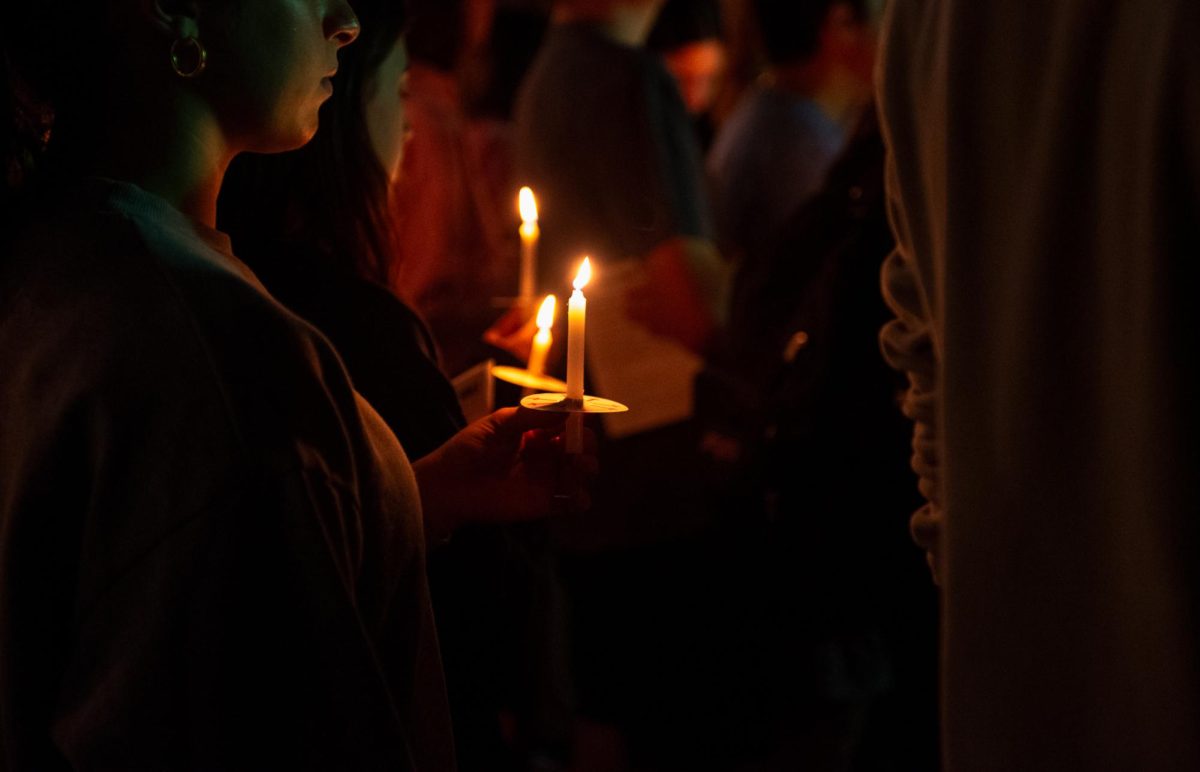








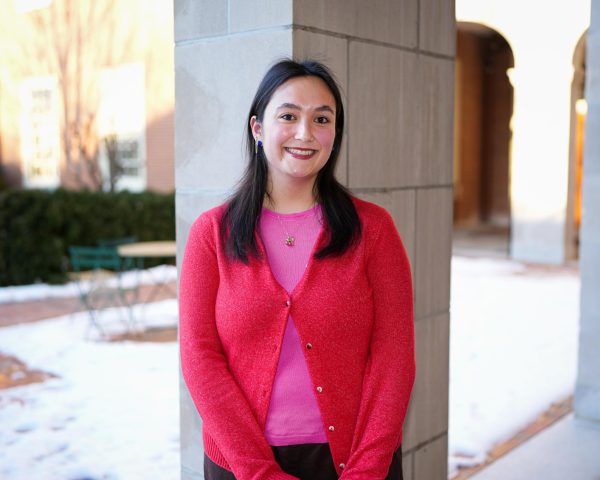
S • Apr 26, 2024 at 2:12 pm
This sounds communist.
Chase Clark • Feb 1, 2024 at 1:12 pm
Skyler, this was brilliant! You captured the moment well! Thank you for this informative piece.